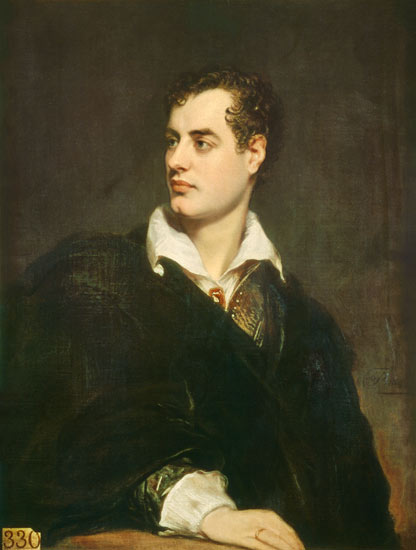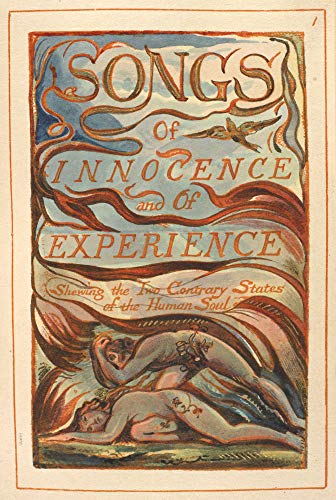https://myblog-inplainenglish.blogspot.com/2018/12/william-wordsworth-5c-linguistico.html
Saturday, 19 October 2024
Saturday, 5 October 2024
Thursday, 20 June 2024
"On First Looking into Chapman's Homer" is a sonnet written by John Keats when he was just 20 years old. Essentially, it is a poem about poetry itself, describing a reading experience so profound that an entire world seems to come to life.
Friday, 27 October 2023
WILLIAM BLAKE - 5^C LINGUISTICO
"One thought fills immensity."
William Blake
Monday, 26 September 2022
THE ROMANTIC AGE - 5^C LINGUISTICO
The Romantic period began roughly around 1798 and lasted until 1837. The political and economic atmosphere at the time heavily influenced this period, with many writers finding inspiration from the French Revolution. There was a lot of social change during this period. Calls for the abolition of slavery became louder during this time, with more writing openly about their objections. After the Agricultural Revolution people moved away from the countryside and farmland and into the cities, where the Industrial Revolution provided jobs and technological innovations. Romanticism was a reaction against this spread of industrialism, as well as a criticism of the aristocratic social and political norms and a call for more attention to nature.
Click here to read my previous post about the Romantic Age.
Monday, 18 October 2021
THE ROMANTIC SPIRIT
Saturday, 19 June 2021
WILLIAM BLAKE'S ILLUMINATED PRINTING
"A method of printing which combines the painter and
the poet." William Blake
Read here.
https://www.skoletorget.no/abb/eng/blake/ill_print.html
Wednesday, 9 December 2020
LORD BYRON, MANFRED AND THE BYRONIC HERO
"We are all the fools of time and terror: Days steal on us and steal from us; yet we live, loathing our life, and dreading still to die.”
Manfred is a dramatic poem written in 1816–1817 by Lord Byron. It contains supernatural elements, in keeping with the popularity of the ghost story in England at the time. It is a typical example of a Romantic closet drama. It was adapted musically by Robert Schumann and later by Pyotr Tchaikovsky. Friedrich Nietzsche was impressed by the poem's depiction of a super-human being, and wrote some music for it.
To say that Manfred is a Byronic hero in the Promethean mold is not new: not only the text of Manfred, but also Byron himself, as well as literary critics from his time until now, suggest it. Read here.
Here you can find a detailed analysis of the figure of the Byronic hero.
Tuesday, 8 December 2020
LORD BYRON - 5^C LINGUISTICO

Monday, 7 December 2020
THE BYRONIC HERO

Monday, 30 November 2020
WILLIAM BLAKE'S ARTISTIC TALENT AND PROFOUND POETRY
https://www.artsy.net/article/artsy-editorial-5-things-you-didn-t-know-about-william-blake
https://www.theartstory.org/artist/blake-william/artworks/
https://www.theguardian.com/culture/2014/nov/21/the-10-best-works-by-william-blake
https://artuk.org/discover/stories/artist-in-focus-william-blake
Sunday, 29 November 2020
GIACOMO LEOPARDI - 5^C LINGUISTICO
Leopardi is considered the greatest Italian poet of the 19th century and one of the most important figures in the literature of the world, as well as one of the most renowned Romantics; his constant reflection on existence and on the human condition - of sensuous and materialist inspiration - has also earned him a reputation as a deep philosopher. He is widely seen as one of the most radical and challenging thinkers of the 19th century, but generally compared to his older contemporary, Alessandro Manzoni, despite expressing completely opposite positions. Although he lived in a secluded town in the conservative Papal States, he came into contact with the main ideas of the Enlightenment, and through his own literary evolution, created a outstanding poetic work, related to the Romantic era. Read here.
His themes are mutability, landscape, love; his attitude, one of unflinching realism in the face of unavoidable human loss. But the manners of the poems are an amalgam of philosophical toughness and the lyrically bittersweet. In a way more pure and distilled than most others in the Western tradition, his poems are truly what Matthew Arnold asked all poetry to be, a “criticism of life.”
Leopardi was a contemporary of the great English
Romantic poets such as Shelley, Keats and Byron who lived in Italy, though he never had the
chance to meet them. Read here.
Wednesday, 21 October 2020
SAMUEL TAYLOR COLERIDGE
English lyrical poet, critic, and philosopher Samuel Taylor Coleridge was born on 21 October 1772. His Lyrical Ballads, written with William Wordsworth, heralded the English Romantic movement, and his Biographia Literaria (1817) is the most significant work of general literary criticism produced in the English Romantic period. Read here.
Here you can download a PDF
presentation.
Wednesday, 22 April 2020
MADAME DE STAËL
Monday, 8 July 2019
PERCY BYSSHE SHELLEY


Saturday, 23 February 2019
COMMEMORATING JOHN KEATS
Monday, 17 December 2018
WILLIAM BLAKE - 5^C LINGUISTICO
William Blake
Monday, 29 October 2018
WALTER SCOTT - 5^C LINGUISTICO

Tuesday, 9 October 2018
THE ENGLISH ROMANTIC MOVEMENT
Here you can download a PDF presentation.
"Fill your paper with the breathings of your heart."
William Wordsworth

















